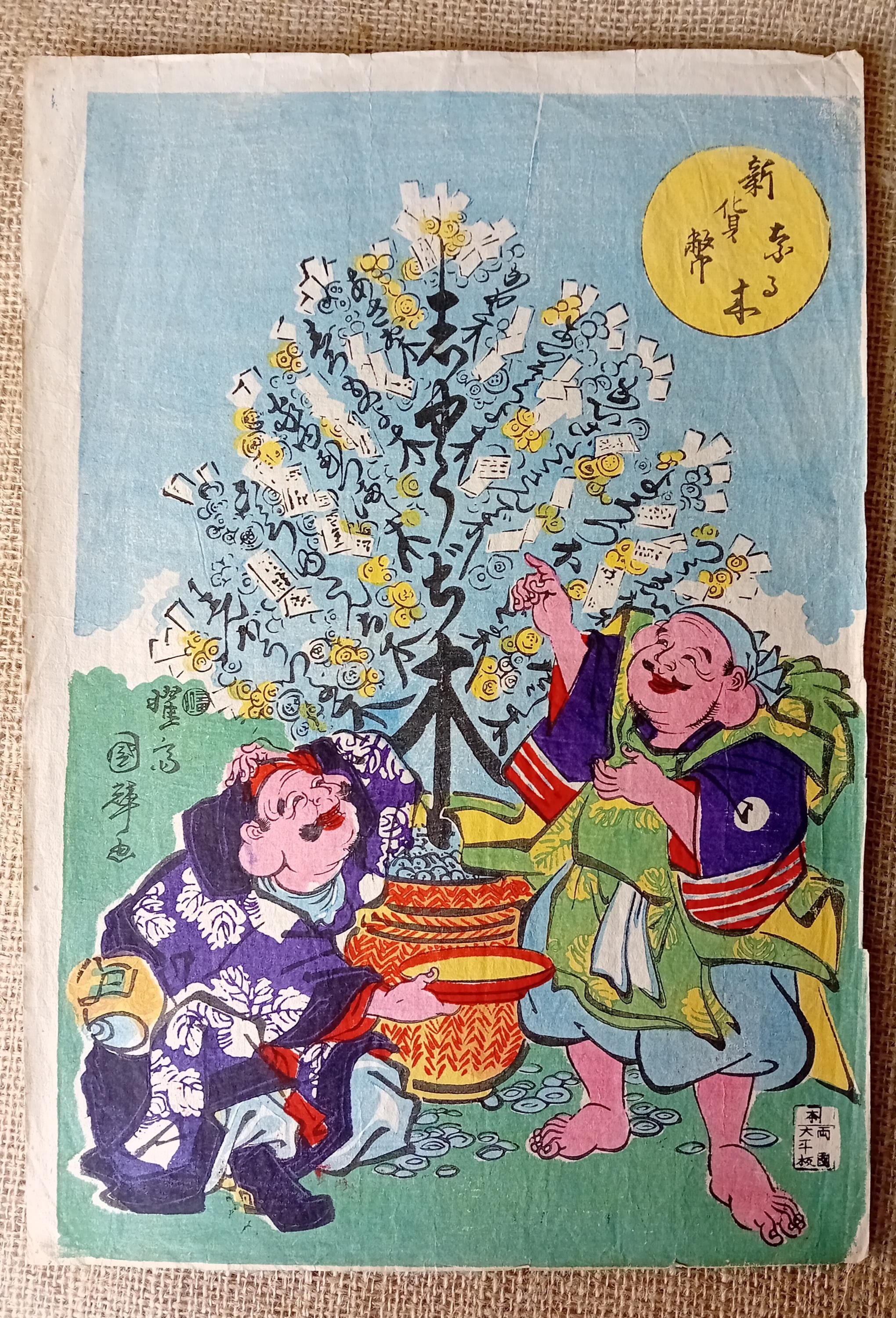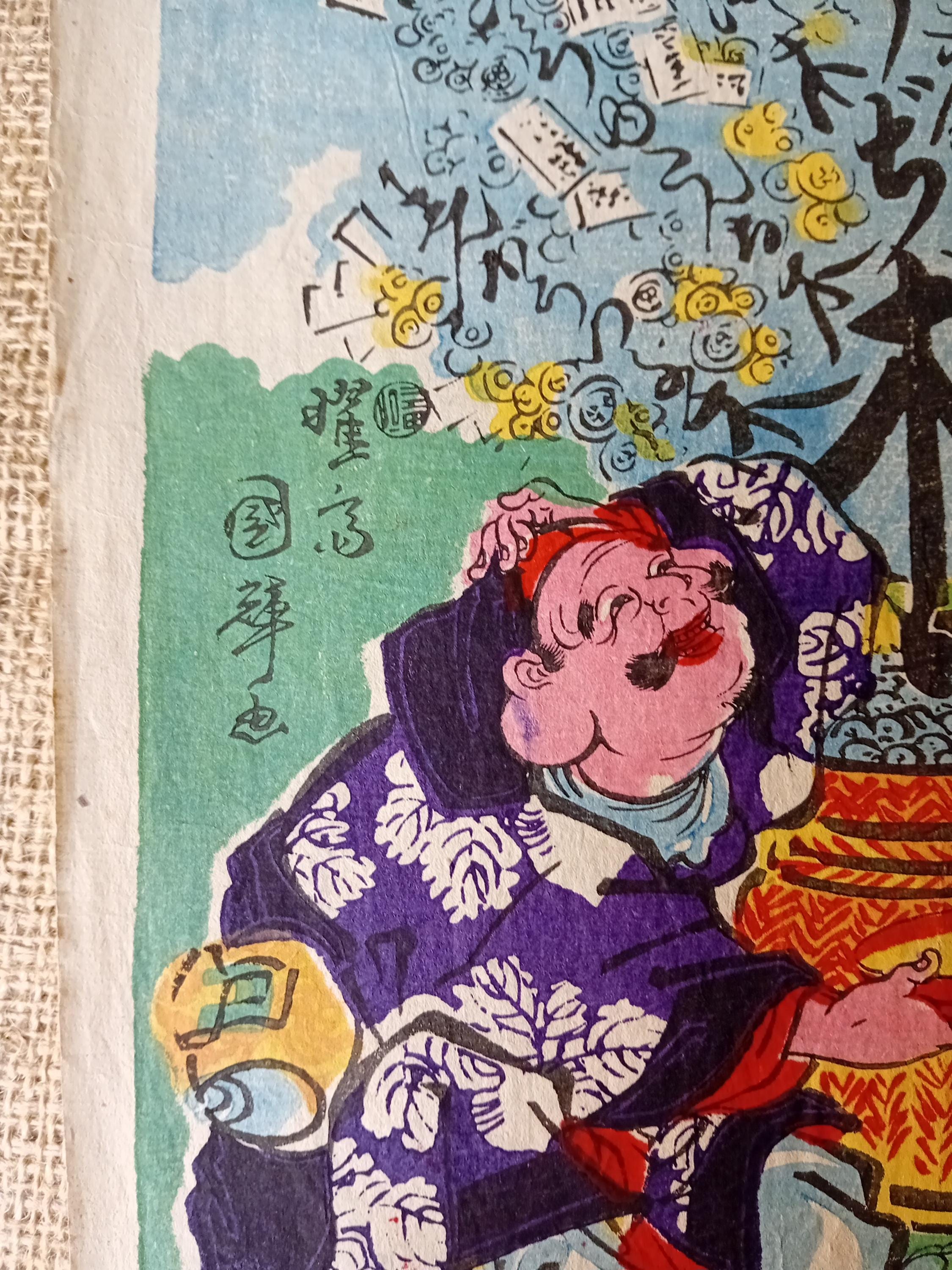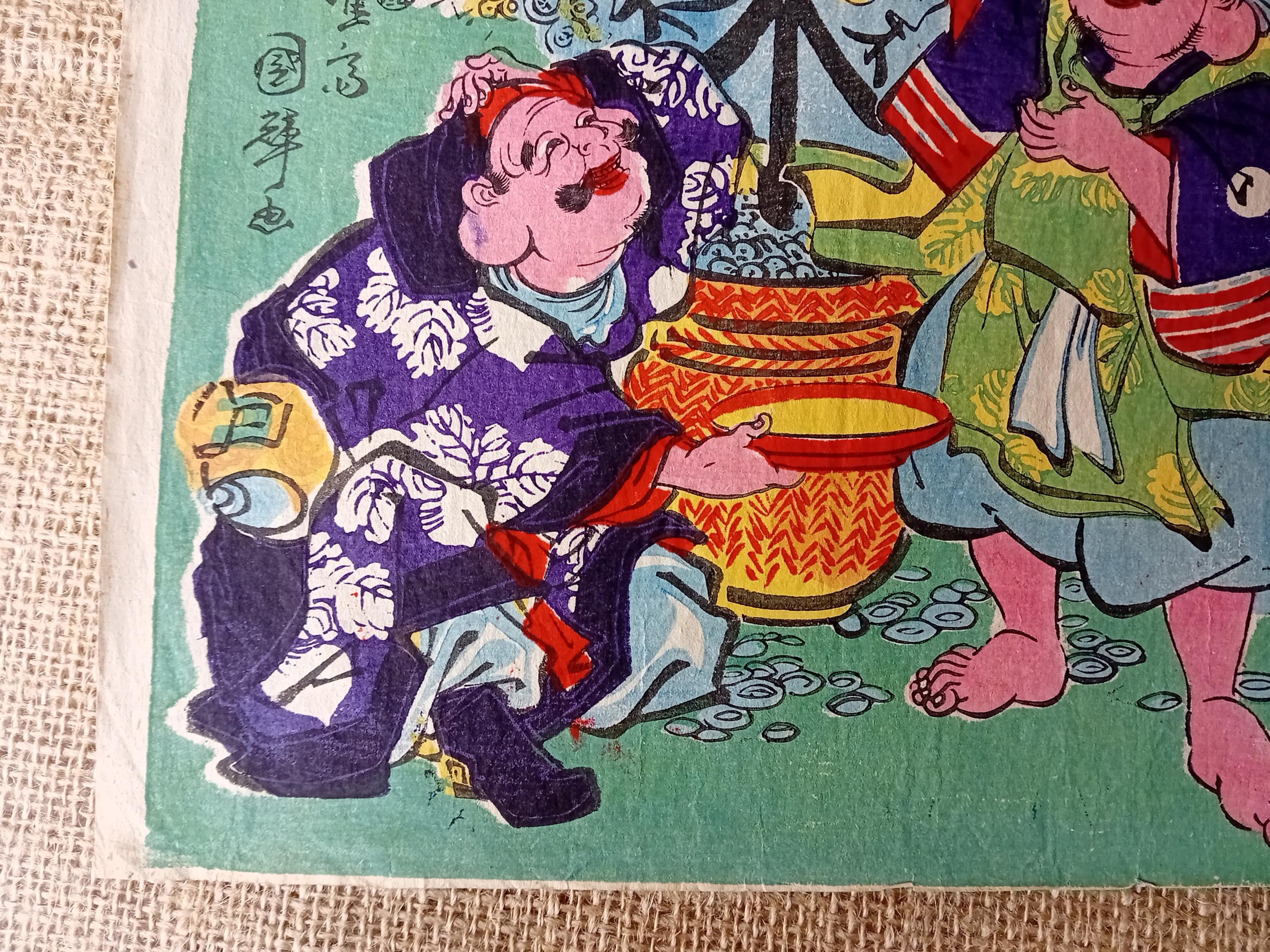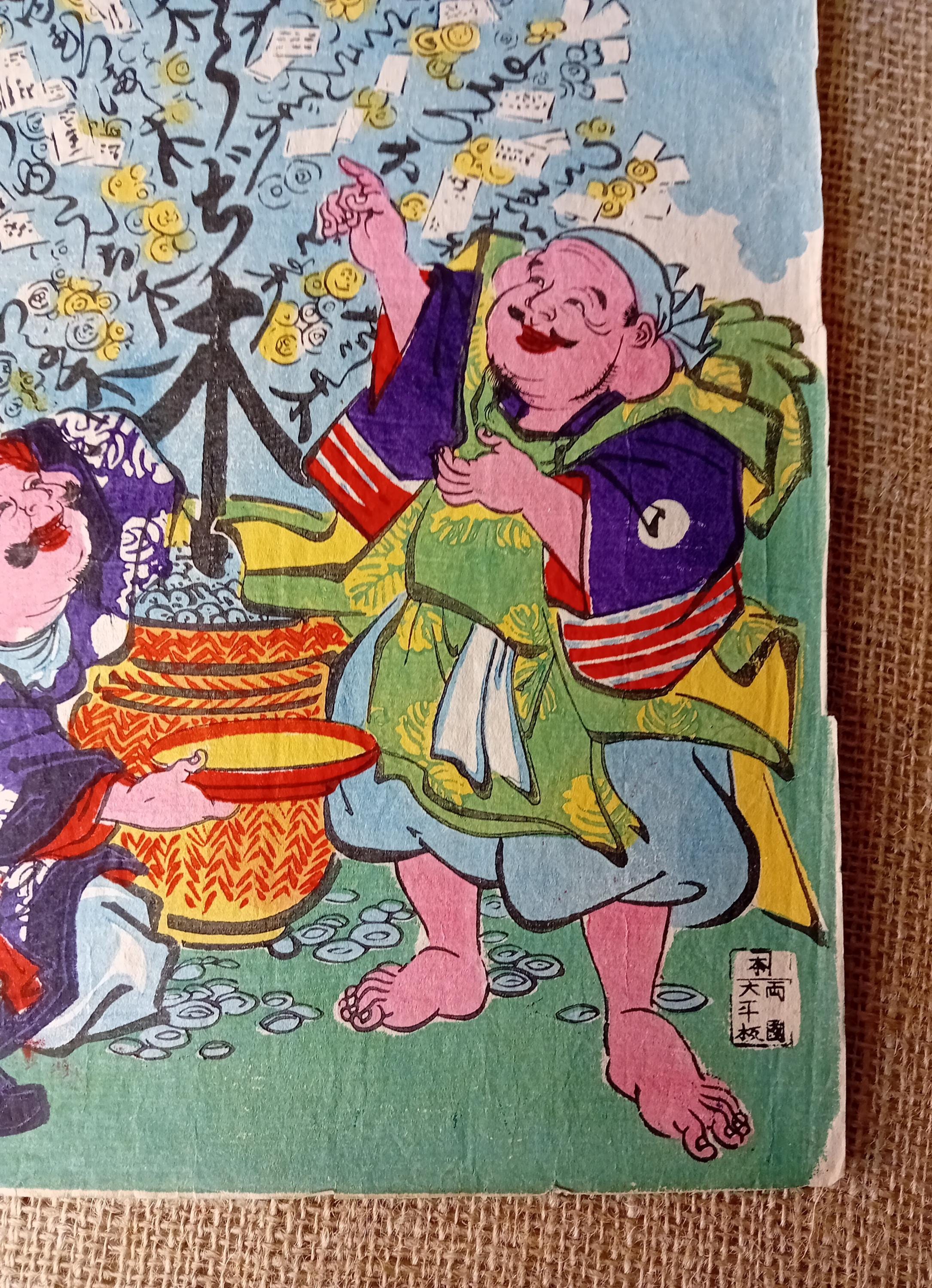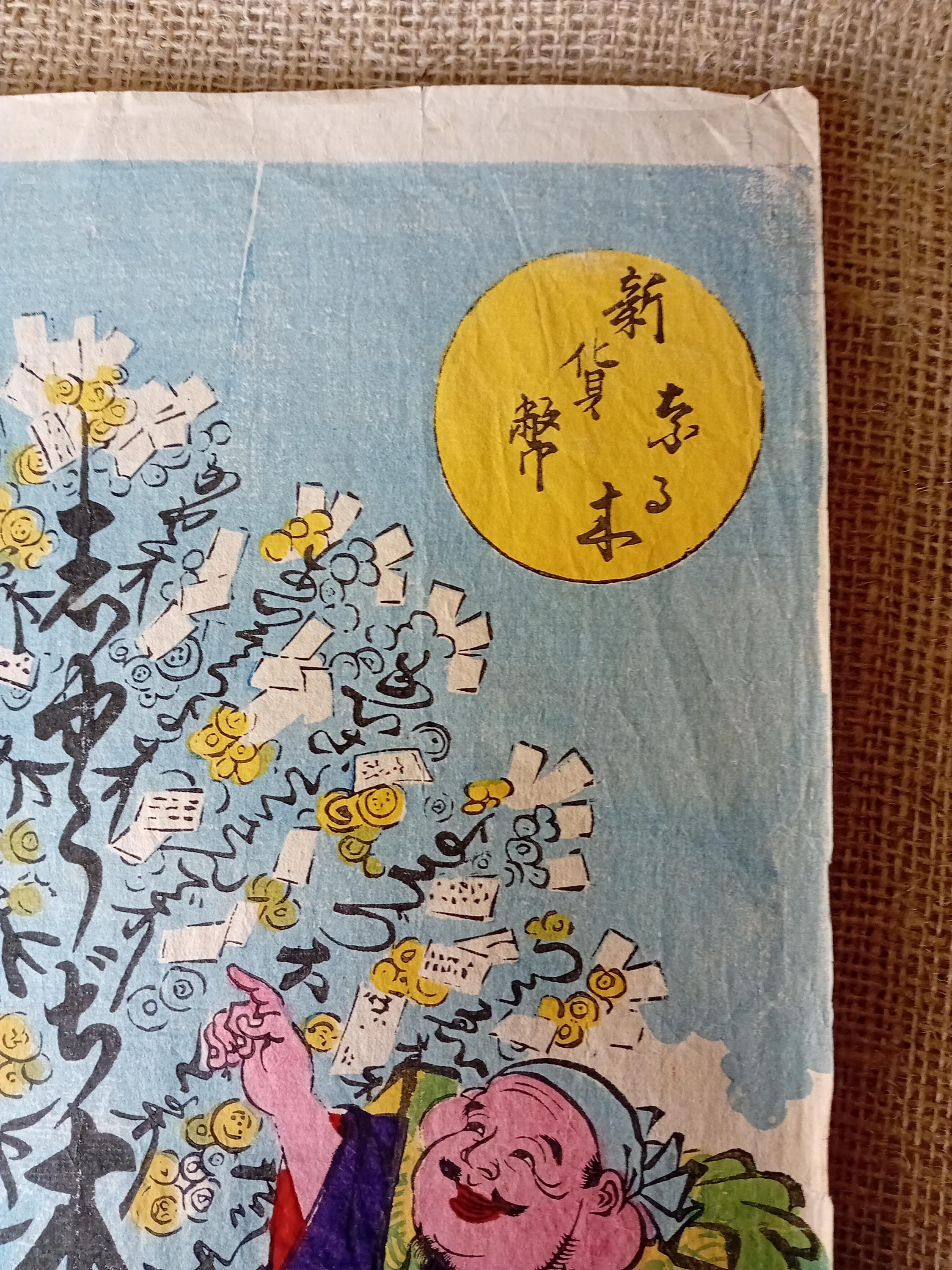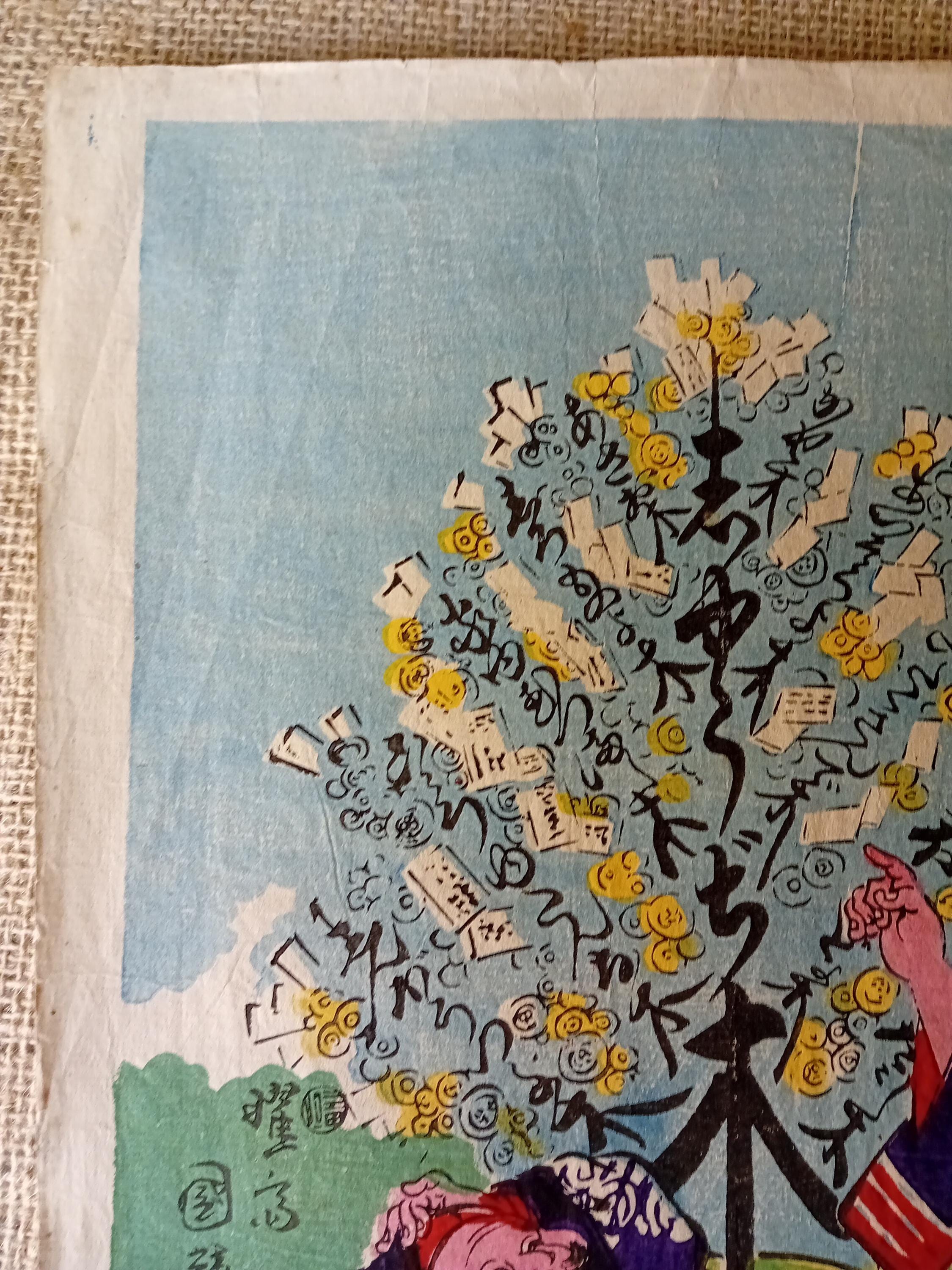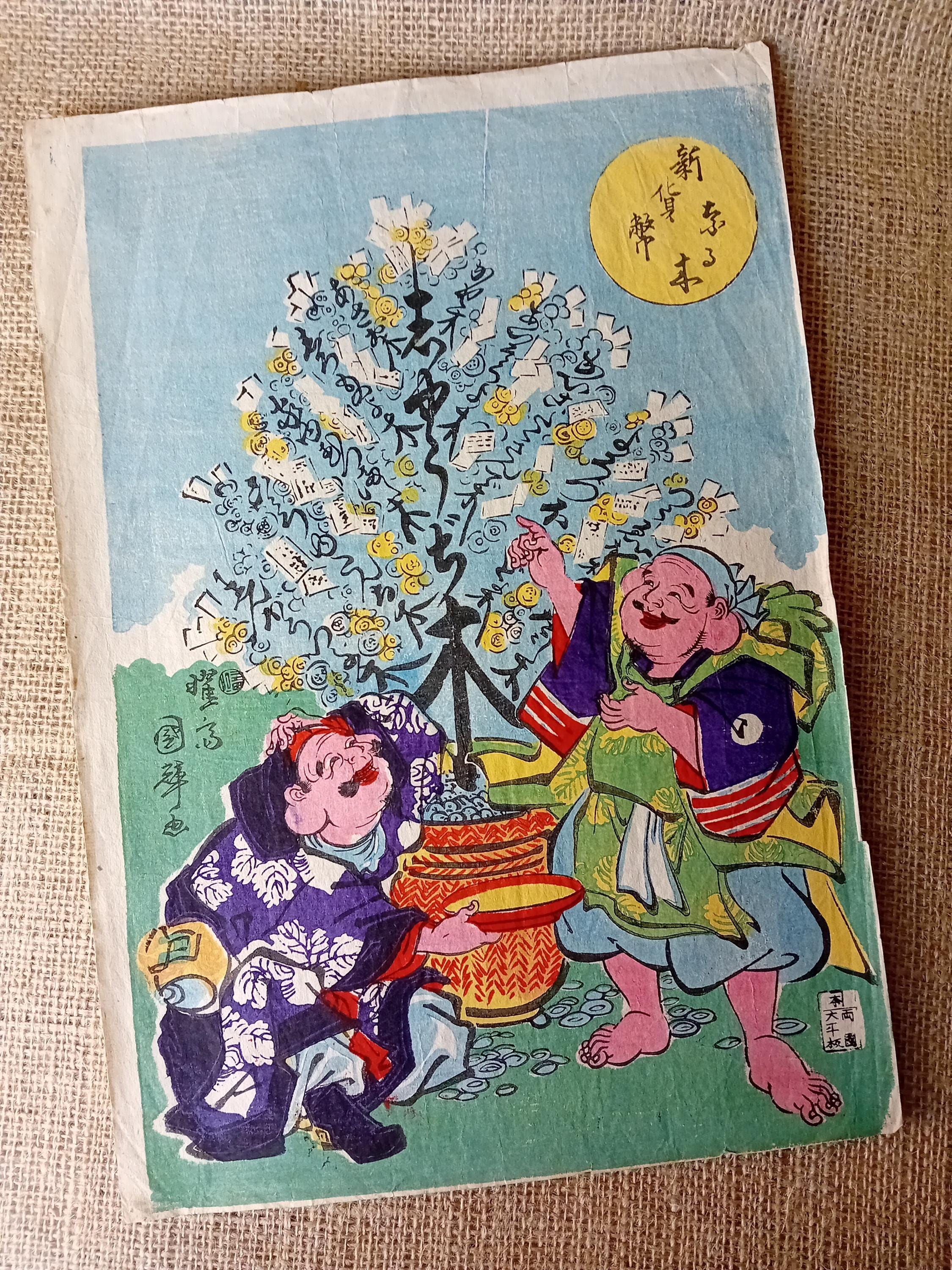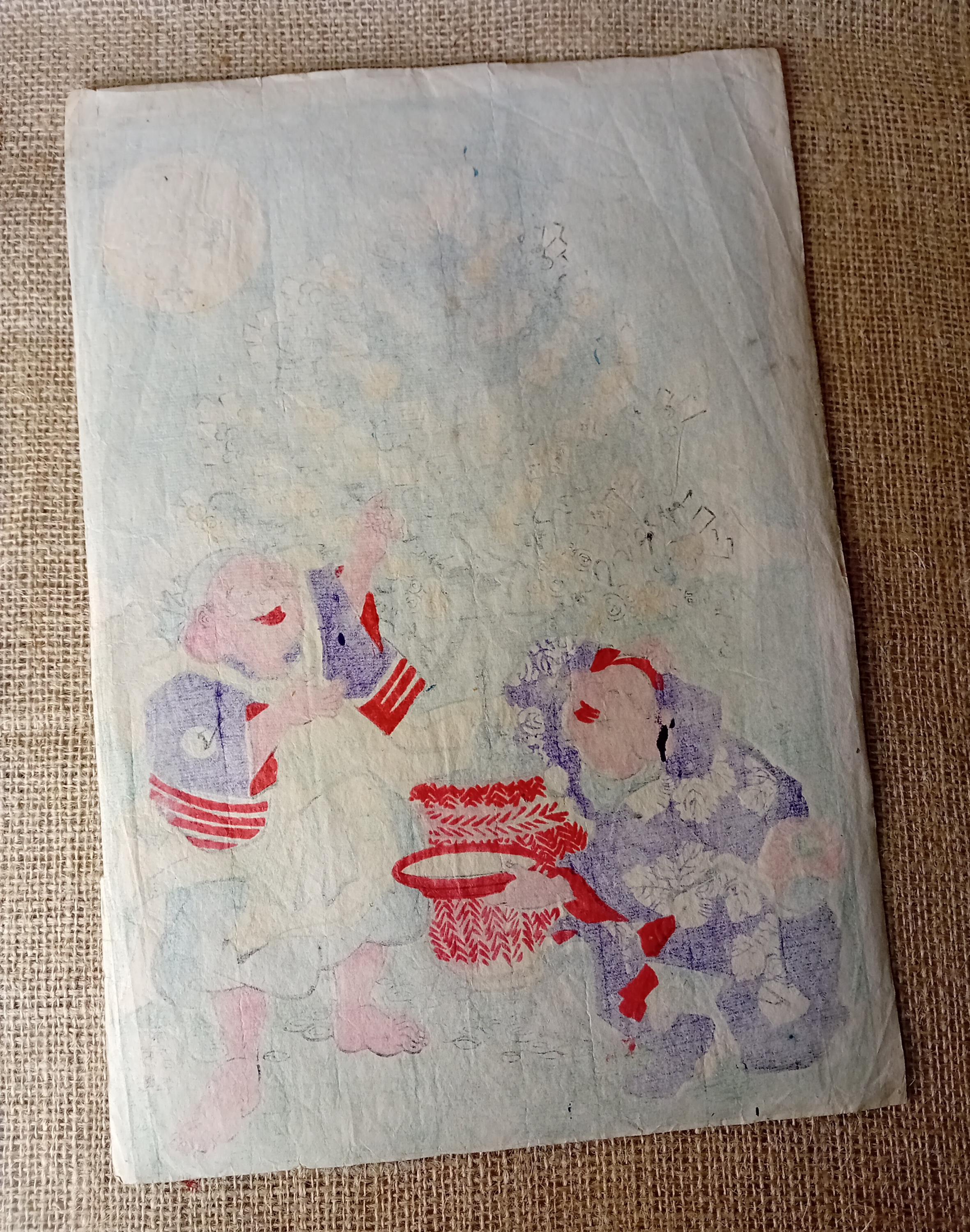Antique Japanese woodblock print, Utagawa Kuniteru, Genuine, Money Tree with Ebisu and Daikoku nearby, Meiji period, Ukiyo-e, Woodcut
$534.38
Authentic artwork, genuine
Utagawa Kuniteru
Money Tree, Ebisu and Daikoku
Age: Antique, Early Meiji period
Original woodblock print
Full size
25.5 x 37 cm
It is a good luck charm with a branch called "Shiyaujiki (Honesty)" on the trunk, on which many bills are growing, and Ebisu and Daikoku are smiling at them.
It was painted by Utagawa Kuniteru.
Ebisu and Daikoku (often spelled Daikokuten in full) are two prominent deities in Japanese mythology, widely revered as members of the Seven Lucky Gods (Shichifukujin), a group of divine figures associated with good fortune, prosperity, and happiness in Japanese folklore.
Ebisu is the god of fishermen, merchants, and prosperity, often depicted as a cheerful, bearded man wearing a tall hat and holding a fishing rod in one hand and a large red sea bream (tai) in the other. The fish is a symbol of abundance and good luck. Ebisu is unique among the Seven Lucky Gods because he is the only one considered to be of purely Japanese origin, tied closely to the Shinto tradition. He’s also associated with safe voyages and success in trade, making him a patron of hardworking people, especially those in commerce or sea-related professions. In some stories, Ebisu is linked to Hiruko, the first child of the creator gods Izanagi and Izanami, who was born without bones and set adrift at sea, only to become a benevolent deity.
Daikoku, or Daikokuten, is the god of wealth, agriculture, and households, often portrayed as a stout figure with a big smile, sitting or standing on bales of rice, holding a golden mallet (uchide no kozuchi) that grants wishes or dispenses riches when struck. He’s typically dressed in a black cap and robes, carrying a large sack of treasures slung over his shoulder. Daikoku’s origins blend Indian and Japanese influences—he evolved from the Hindu deity Mahakala, a fierce form of Shiva, but in Japan, he transformed into a friendly, approachable god of prosperity. Farmers honor him for bountiful harvests, while merchants and families pray to him for financial success and stability. His rice bales also symbolize food security, tying him to the earth and sustenance.
Together, Ebisu and Daikoku are often paired in art and shrines, representing complementary aspects of wealth: Ebisu for commerce and the sea, Daikoku for agriculture and the land. Their images adorn shops, homes, and fishing boats, especially around New Year celebrations when the Seven Lucky Gods are said to sail on their treasure ship (takarabune) to bring blessings. They’re approachable, down-to-earth deities—less about cosmic power and more about everyday abundance and good vibes.
If you're captivated by vintage works from the late 20th and early 21st centuries, including scrolls, shikishi, paintings, calligraphy, oshi-e, posters and vintage prints of renowned Japanese artists, explore our other gallery, JapaneseArtY, at https://japanesearty.etsy.com.
Please note that antique and vintage artworks may have traces of time, stains and creases due to age, so please review all photos.
We upload photos where you can check the condition of the item. But sometimes the photos may not show everything. Also, the colors in the photos may not match the original. Please feel free to ask for additional photos.
If you have any questions, please feel free to contact us.
Before shipping, all artworks are placed in special cardboard envelopes/boxes and cardboard to ensure their safety during transportation.
If you need additional photos, feel free to contact me. Also contact me if you are interested in a particular artwork.
If possible, please provide your phone number when placing your order, it is often required by the courier for delivery.
Shipping from Latvia
Processing time
1-3 business days
Customs and import taxes
Buyers are responsible for any customs and import taxes that may apply. I'm not responsible for delays due to customs.
Payment Options
Returns & Exchanges
I don't accept returns, exchanges, or cancellations
But please contact me if you have any problems with your order.

